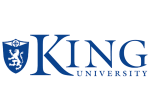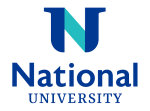 All degrees don’t pay high dividends. Pay back from your business degree will depend on your major. If you want your education to produce a high return, choose an online accounting degree. Starting salaries typically begin around $45,000. Add on years of experience in management and you could make more than $100,000.
All degrees don’t pay high dividends. Pay back from your business degree will depend on your major. If you want your education to produce a high return, choose an online accounting degree. Starting salaries typically begin around $45,000. Add on years of experience in management and you could make more than $100,000.
Newly-minted accounting majors receive the most job offers from employers, according to the National Association of Colleges and Employers. Accounting pros, especially certified public accountants (CPAs), will see quite steady demand for their skills over the next decade, according to the BLS. And since acountants are not just important around tax-time, but are critical components of successful organizations, accountants can find work in nearly every sector of business.
THE CAREER PATH
Different paths within accounting cover different topics of finances and business management. There are career options which require very little educational preparation, and some that require many years of experience and extensive education. Here are some of the most popular careers in accounting:
- Accounting/Bookkeeping/Auditing Clerks – Clerks are the professionals who record financial transactions, update statements, and produce financial records as well as checking reports for accuracy. Each clerk may handle slightly different tasks on the job—bookkeeping clerks are the individuals who are primarily responsible for maintaining the daily ledger of financial transactions, while accounting clerks typically work for larger organizations, performing more specific tasks depending on their level of experience. Becoming a clerk typically only requires some postsecondary education and/or certifications, and pays nearly $40,000 each year on average.
- Accountants and Auditors – Accountants and auditors are the professionals that you were probably thinking of when you started to read this page. The demand of accountants can usually be gauged by the status of the economy; as the economy continues to thrive and individuals are earning more income and spending more money, the demand on accountants and auditors is expected to increase by more than 10% in the coming years. Not only is it a reliable line of work, but becoming an accountant or auditor is also both accessible and rewarding for professionals. The average annual salary is nearly $70,000, and the standard requirement is typically a bachelor’s degree along with a certification and/or licensure.
- Cost Estimators – You may recognize these professionals particularly from their work in the construction industry; they are not limited to that industry alone, but they do tend to specialize in a specific line of projects. They typically collect and analyze data in order to estimate the overall financial and resourceful cost that is required to manufacture a product, construct a building, or provide a service. Along with years of experience within your area of interest, most employers will also require at least a bachelor’s level education. Voluntary certifications may be preferable for applicants to increase their competitiveness. Much like accounting and auditing, there is an anticipated increase in the demand for cost estimators by nearly 10% in the upcoming decade, and their average salary is just over $60,000.
- Budget Analysts – After many years of experience and education, professionals can aim their career sights to becoming an analyst. Budget analysts are responsible for helping public and private institutions organize their finances by preparing reports and monitoring spending. These types of analyst positions typically require applicants to achieve either a bachelor’s or master’s level education. Various state and local governments may have specific requirements, so if you’re interested into developing your career into an analyst role, it’s important to understand the regulations for your particular area. Higher-level positions in accounting, like analyst professionals, tend to be far more competitive, but they reward accordingly. The demand for budget analysts is supposed to increase by around 3%, and most professionals make almost $75,000 on average each year.
- Financial Analysts – These professionals may be the type of suit-wearing financial gurus that you associate with the words “Wall Street.” Generally speaking, they provide guidance to both businesses and individuals on smart investment decisions by assessing the performance of stocks, bonds, and other investments. Just like professionals in the budget analysis profession, financial analyst positions require a master’s degree more often than not, and some accept a bachelor’s degree on special occasions. Adequately qualified professionals will obtain a license from the Financial Industry Regulatory Authority (FINRA). Financial analysts are one of the highest paid accounting professionals, making more than $80,000 each year on average. If that isn’t enough to spark your interest, they are also among the highest in demand, with an expected increase of 12% in the coming decade.
WHO IS THE IDEAL CANDIDATE?
If you’re considering a career in accounting, it is likely that you already have an interest in math—which is good! Strong math skills are non-negotiable for any position in this industry. The analytical skills to critically assess numerical data are also a necessity, regardless of which direction you decide to steer your career in. Beyond the fundamental accounting skills, the various careers that you may choose from within the accounting industry are also likely to require a diverse understanding of computer software, organizational management, as well as communication and writing skills.
WHAT SHOULD I LOOK FOR?
Demand is high and wages solid for all types of accounting professionals. If you’re just starting out, try an online certificate in bookkeeping. (Accounting professionals who lack a college degree are often referred to as bookkeepers instead of accountants.) With a certificate—which takes about a year of full-time study—you can snag an entry-level job as a bookkeeper or payroll clerk.
An associate’s degree offers many of the same job opportunities that a certificate does, such as bookkeeping, accounts payable and payroll. Although it takes around two years to earn an associate’s, you’ll have a strong base in accounting principles upon graduation. You can then move up through the ranks as you continue your education online from your laptop. For the best career positions (like we mentioned above) and salary offers, choose a bachelor’s degree in accounting.
Top positions usually require that you earn both a bachelor’s degree and a certified public accountant designation. The CPA is a professional license or certification that can be earned post-degree. Before pursuing any accounting degree program online, make sure it meets the requirements in your state for taking the CPA exam. Most states require applicants for CPA licensure to earn a regionally accredited bachelor’s degree and to have completed two years of accounting experience under the supervision of a CPA. If you pass the national CPA exam and meet your state’s requirements, you can then call yourself a CPA accountant.
Already a CPA? Consider a graduate degree. Boost your tax code competency with a master’s degree in taxation. An online accounting master’s or an online MBA in accounting can help you move up in management. Either advanced number-crunching degree will increase your chances of salary increases and job security over the lifetime of your career.
COST
Whether you are already a working professional, or whether you are a recent high school graduate exploring all of your career options, there are careers and degree programs in accounting that can suit your lifestyle needs and interests. The average four-year accounting degree generally costs between $30,000 and $50,000 while a master’s will cost just over $22,000, on average. That price doesn’t include the cost of additional certifications, books, or educational materials. When you look into your program options, make sure to take those additional costs into consideration to ensure that you get the most bang for your buck.
















